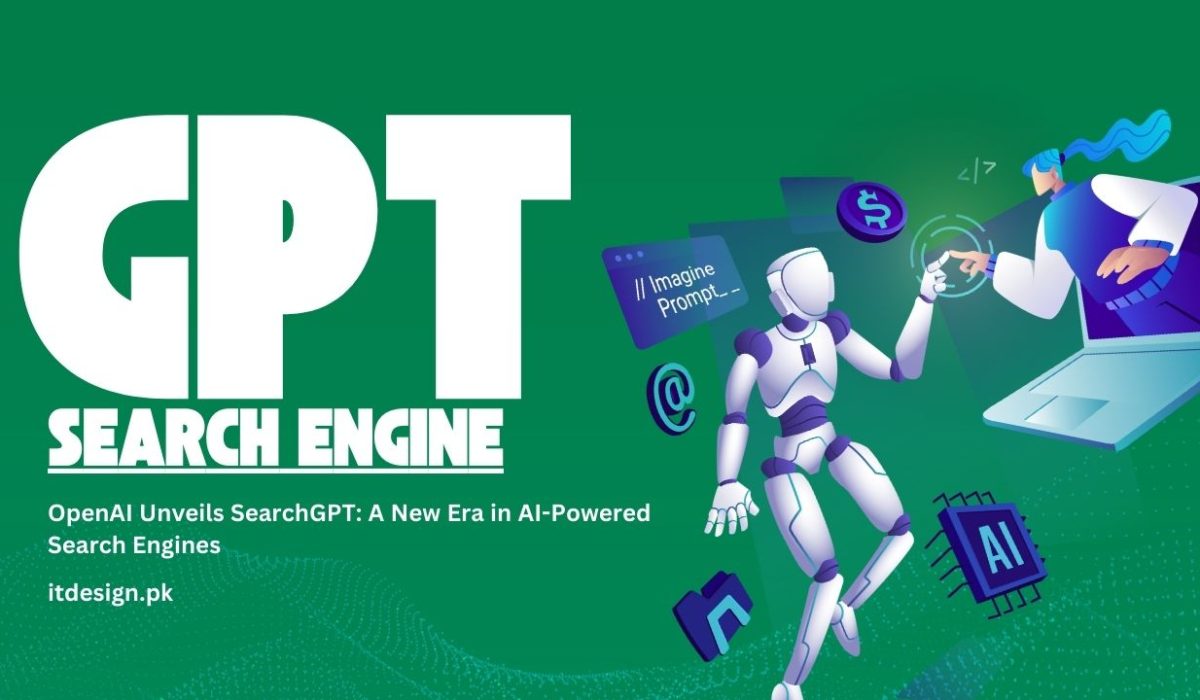OpenAI Announces World’s First Search Engine: ‘SearchGPT’ 25 Jul 2024 OpenAI Press This game-changing creation is set to disrupt how search engines are viewed and utilized, providing a radical departure from traditional searching methods via Google, counteracted by the potential competition of up-and-coming platforms such as Perplexity. Everything you need to know about the news:
Table of Contents
ToggleThe Announcement and Initial Prototype
OpenAI Launches Its Own Web-Based Search Engine And Here’s Why It Matters OpenAI earlier this month introduced to the world its search market project, called SearchGPT, a machine learning-based question-answering model and AI-powered search engine that sources information “from all across the web in real-time.” Most search engines provide a list of links. SearchGPT sorts and packages information for users as needed. The returned links encapsulate direct attribution to events if you search for music festivals.
Currently, searchGPT is a prototype that is only available to 10,000 test users. OpenAI representative Kayla Wood said the search function is being improved with third-party partners and direct content feeds. These features should eventually be merged directly into ChatGPT.
A Competitive Landscape: Google and Perplexity
The launch of SearchGPT would be a major threat to Google, which has been incorporating AI enhancements in its search engine to stay ahead of competitors. When the AI-powered search engine Perplexity launched, it was attacked for copying content and assigning proper credit. OpenAI appears to have learned from these mistakes, bringing a new focus to partnerships with news organizations as part of the transparency initiative for clear and inline attribution and search result linking.
Key Features of SearchGPT
Up-to-date Information: SearchGPT provides real-time information, which makes it ideal for people looking to receive the latest data.
Structured Results:
SearchGPT gives structured summaries with attribution links (not just a list of URLs), making it easy for readers to learn all the necessary details quickly.
Follow-Up Questions:
If the users want more information on a topic after seeing the initial facilities, they can use follow-up questions to increase their search experience.
Visual Answers:
Another key feature is “visual answers,” but this work was not spelled out before publication.
Publisher Collaboration:
OpenAI has collaborated with several news partners, like The Wall Street Journal, The Associated Press, and Vox Media, to be respectful towards content (check for accuracy).
The Challenges and Opportunities to Come
SearchGPT functions as a prototype, allowing OpenAI to polish its features and correct any mistakes (including the infamous AI-generated bad suggestion of putting glue on pizza by another AI model). It acts as a hedge against future possible pitfalls and provides space for simply making mistakes and learning from said errors.
The next major factor is financial. Now, given the AI training and inference costs that could go up to a whopping $7 billion this year alone, monetization strategies will be key to SearchGPT’s sustainability. The beginning is free, but eventually, OpenAI will have to forge a business model.
User Experience and Feedback
The impressions early tap testers provide will go a long way toward influencing the future of SearchGPT. By the end of this year, we will have a search engine that can no longer be easily dismissed as less efficient than current leaders such as Google or newcomers like Perplexity by any respective user-experience standards.
Final Thought: The Rise of AI Search
SearchGPT, the recently released search-based product of OpenAI, marks big progress toward the frontier line on one side. This means it provides live, well-ordered search results without the personal privacy trade-offs associated with traditional searches. The prototype continues to evolve, but seeing how SearchGPT changes the search landscape as more users fold in and start experimenting with it will be interesting.
We’ll keep you updated as we work on SearchGPT—and maybe integrate it into ChatGPT to provide its enhanced, AI-powered search functionalities!



